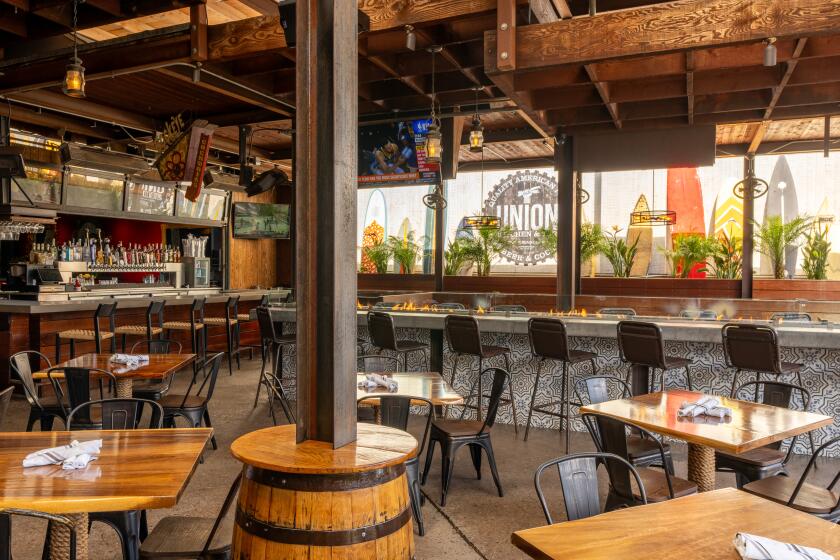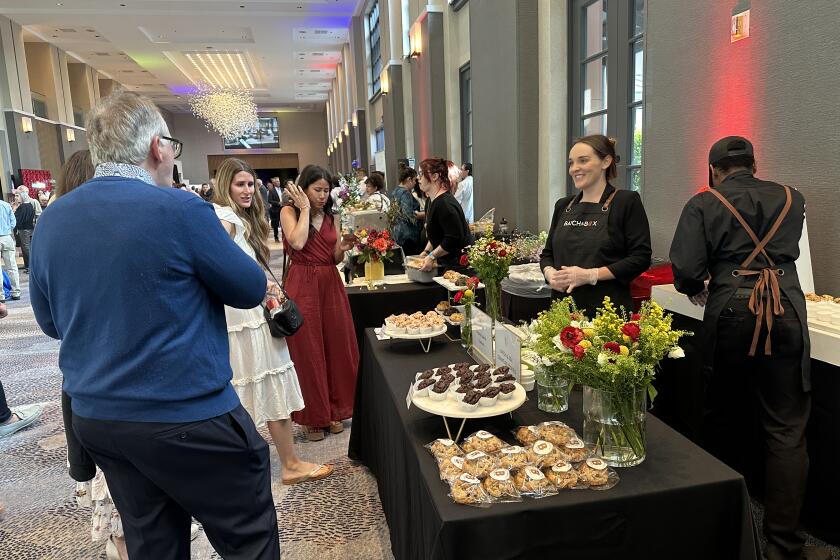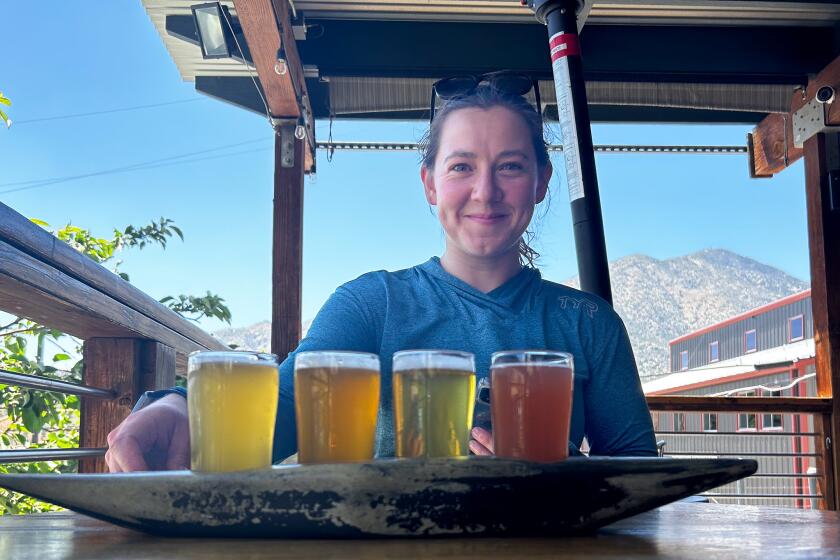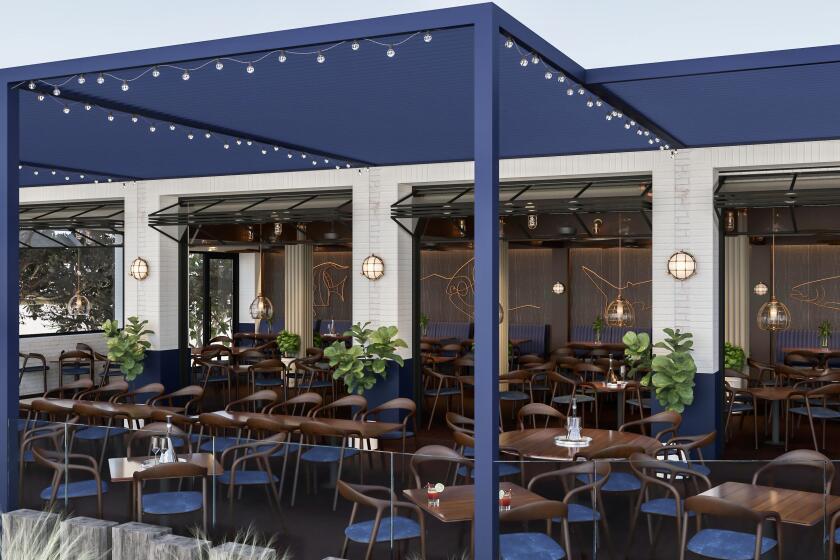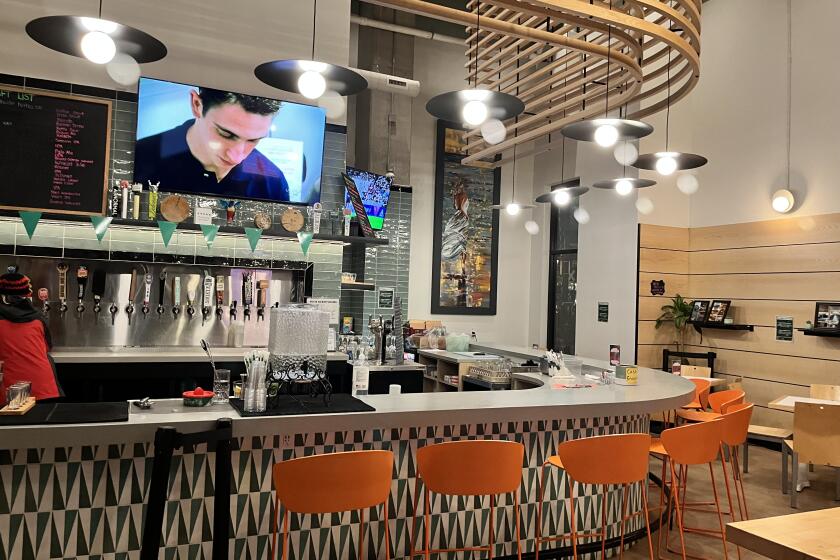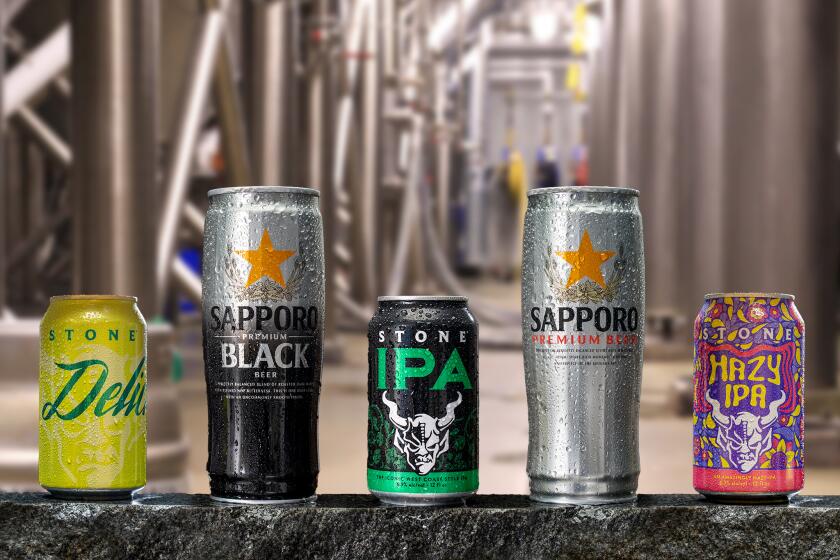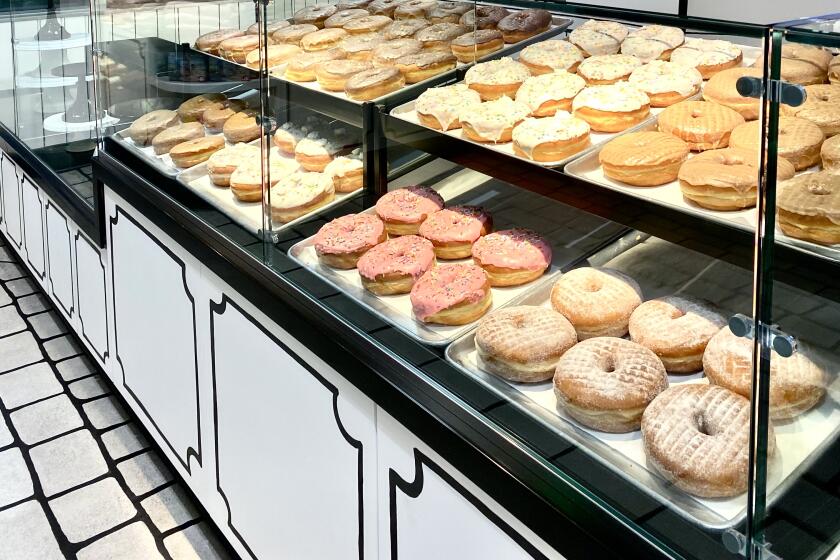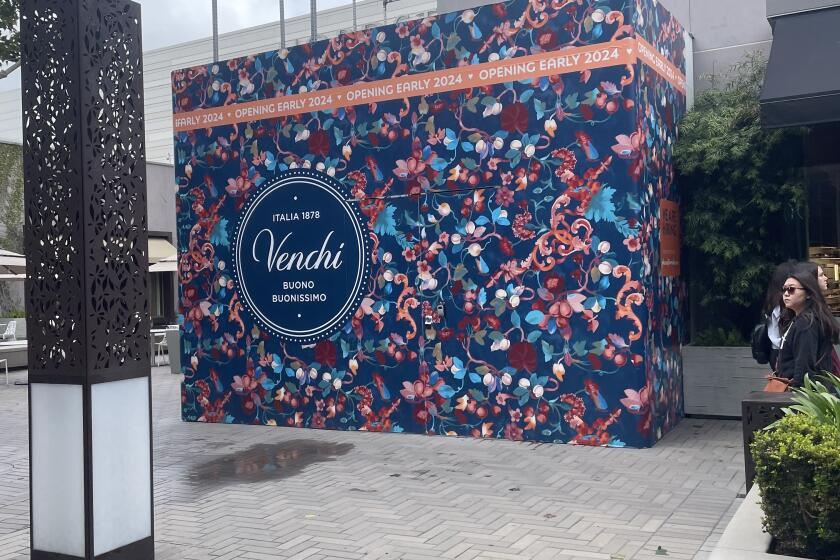Chefs cooking up new solutions for epidemic of food waste
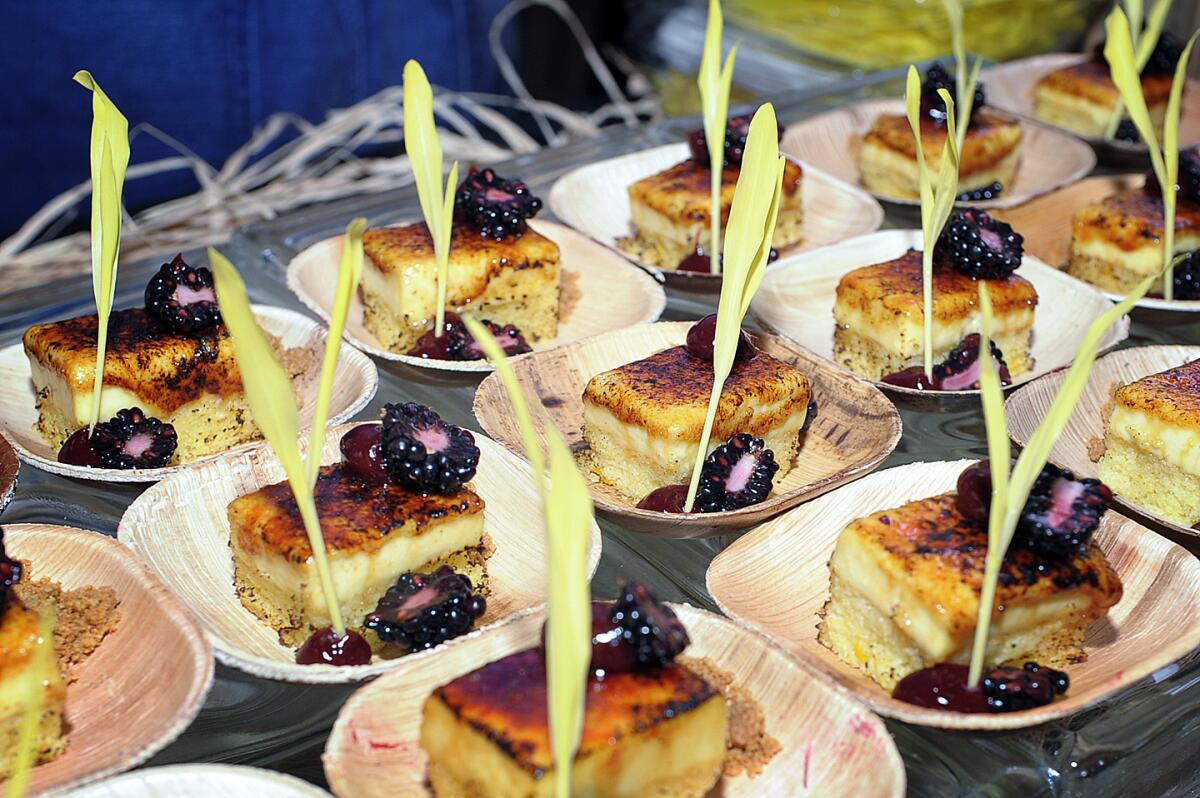
From avocado pit mole to banana peel cake pops, Sunday’s ‘Wasted’ culinary fest turned food trash into edible treats
Every year in America, an estimated 37 million Americans go hungry, while at the same time 40 percent of all edible food goes to waste.
On Sunday, 35 San Diego County chefs and mixologists presented their own creative solutions for solving both problems at Kitchens for Good’s second annual “Wasted: A Celebration of Sustainable Food” fundraiser. Ticket-holders tasted their way through booths dishing up banana peel cake pops, meat scrap tartare, avocado pit mole, corn cob mousse and imperfect raspberry sour cocktails.
These and dozens of other gourmet dishes and drinks were made with food scraps, day-old bread, bruised produce and organ meats that usually end up in landfills rather than on dinner plates. Changing public perceptions about edible food is a major goal of Kitchens for Good.
The San Diego nonprofit’s Project Reclaim rescues surplus food and blemished produce for use in its education and catering program that teaches culinary job skills to at-risk adults who have been incarcerated, homeless or in the foster care system. Over the past four years, 90 percent of the program’s 350 graduates have found immediate employment in the local culinary industry and 86 percent have remain employed after 18 months.
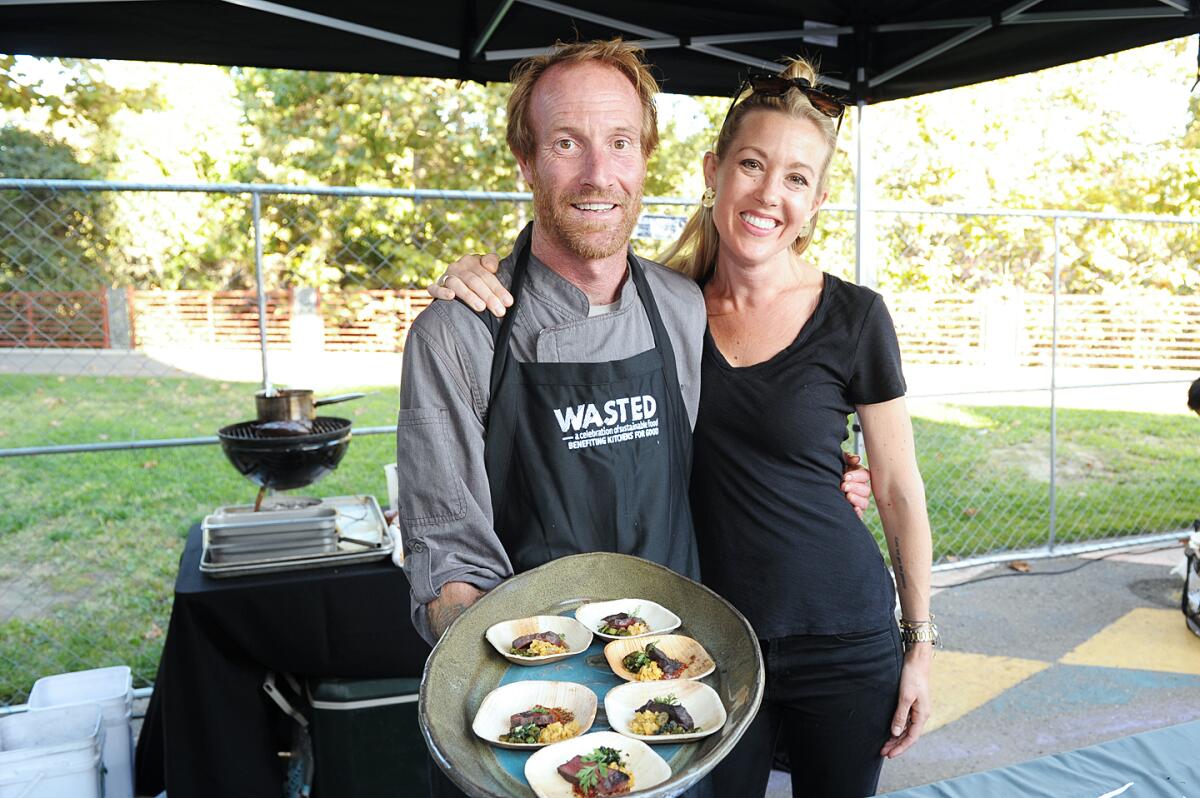
Because KFG works so closely year-round with San Diego County restaurant chefs — who serve as teachers, mentors and employers for its students — CEO Jennifer Gilmore said it was a natural extension of the organization’s mission to invite chefs and mixologists to share their ideas on recycling food waste at the Wasted fundraiser.
“There’s no better way to break down the stigma of recycling food than to get together and cook and eat and enjoy delicious dishes,” Gilmore said. “Lots of chefs are already practicing food recycling in their kitchens because it’s good business. They enjoy sharing what they’ve learned.”
The Sysco-sponsored event, held at KFG’s headquarters at the Jacobs Center for Neighborhood Innovation in Encanto, drew more than 350 KFG donors, culinary industry officials and foodies who follow the Instagram feeds of local chefs. “Tommy the Fishmonger” Gomes served as program emcee for a series of onstage recycled food cooking demonstrations and a silent auction.
Meanwhile, cooking teams at three dozen tables competed for diners’ picks for the best savory, sweet and cocktail prizes. The winners were chef A.G. Warfield of Canapé Catering for his sour patch pork belly bites, Thiago Silva of Chew Innovation for his crème brûlée cake and mixologist Irving Gonzalez of Snake Oil Cocktail for his “not wasted” cocktail.
Restaurateurs Davin and Jessica Waite served filets of grilled beef heart with mole made from roasted avocado seeds. The Waites practice a zero waste ethos at their Oceanside restaurants, which include the Wrench & Rodent Seabasstropub, Whet Noodle ramen shop and soon-to-open plant-based restaurant, The Plot. This means using virtually every part of the fish, meats and vegetables they buy.
Jessica Waite, a vegan who is also president of San Diego’s Berry Good Food Foundation, said it’s important to teach consumers that using ingredients like fish bones, organ meats, carrot tops and overripe fruit is not only smart and cost-efficient, it’s also delicious.
“There’s this ‘landfill lasagna’ attitude some people have that these ingredients are seen as less valuable,” she said. “We see every single part of that vegetable or animal as a resource, and many times they’re the most flavorable parts,” she said.
Chef Aaron Obregon of ALBACA restaurant in Coronado played with the afternoon’s theme by creating a dish he called “compost casserole.” Vegetables were tossed in an edible “soil” made from dried coffee grounds, cocoa powder and coconut oil, then roasted and served with mole verde made from the bottoms of broccolini, asparagus and chard.
For his lobster bisque, chef Alex Carballo of Service Culture Restaurant Group ground up the heads of lobsters he’d accumulated in the company’s walk-in freezers for six months, then slow-cooked them in a reduction process that took two days. Most diners won’t eat the meat inside lobster heads, but Carballo said it’s the most flavorable part of the crustacean.
Jeremy Harville, executive pastry chef for Trust Restaurant Group, made a multi-layered dessert with corn cob mousse, ricotta whey and day-old brioche. He said that Trust chefs are strongly encouraged to be creative in using every part of the ingredients they serve to reduce waste.
Filippo Piccini of Solare Ristorante Italiano created a ciccia crudo (or beef tartare) made from scraps cut from rib bones and melted beef fat served on a roasted fingerling potato to save on plates. It was topped with a foam made from the hard rind of a Parmesan cheese wheel.
And Eat Cleaner chef Mareya Ibrahim made a chocolate chunk banana peel bread dusted with the fragrant husks of cocoa beans, which are usually discarded.
“The Wasted event and efforts behind Kitchens for Good aligns so perfectly with our intrinsic company values,” Ibrahim said. “Our mission with our product line and content is to help people enjoy safe, fresh, longer-lasting food while preventing food waste.”
Get U-T Arts & Culture on Thursdays
A San Diego insider’s look at what talented artists are bringing to the stage, screen, galleries and more.
You may occasionally receive promotional content from the San Diego Union-Tribune.





